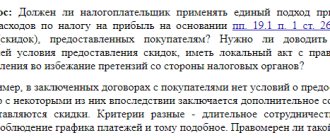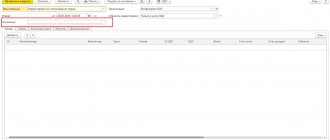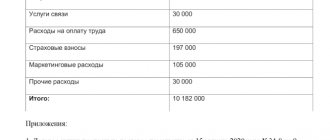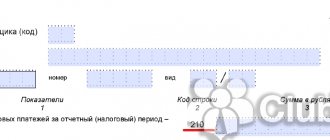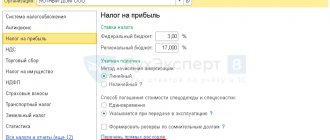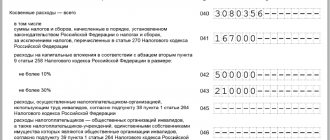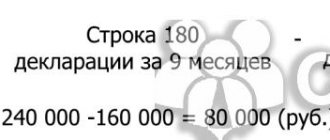Expenses relating to previous tax periods
Let’s assume that this year the organization established expenses that were not taken into account last year 2022. In this case, the official has two options:
- It is necessary to submit to the tax office an updated income tax return for the previous year, including information about missing expenses.
- Take into account the discovered expenses in the tax base when determining the tax amount for 2022.
The second option is allowed to be executed only if it turns out that more tax was paid last year than necessary. This follows from paragraph 1 of Art. 54 Tax Code of the Russian Federation.
In the case under study, there is an overpayment of tax, since the tax base for 2022 was overestimated, therefore, the organization has the right to accept last year’s expenses when calculating the taxable base for income tax in the current year 2020 .
However, tax inspectors are ambiguous on this issue. In their opinion, if an organization plans to take into account past expenses this year, then it needs to fulfill three conditions that are not directly described in the Tax Code of the Russian Federation.
Submission of an updated VAT return for the fourth quarter. to the Federal Tax Service
If an updated declaration is submitted after the tax payment deadline, the taxpayer can avoid a fine of 20% of the amount of unpaid tax if (Clause 4 of Article 81 of the Tax Code of the Russian Federation, Article 122 of the Tax Code of the Russian Federation):
- will pay the tax arrears and the corresponding penalties before submitting an updated declaration.
Learn more:
- Payment of VAT to the budget
- Cheat sheet for calculating and accounting for penalties
- Calculation and payment of VAT penalties
When correcting a VAT amount error, provide an updated declaration for the period the error occurred:
- On the title page: PDF Correction number – 1 , i.e. number of the updated declaration in order.
- Tax (reporting) period (code) – 21 “first quarter”, i.e. numeric code of the period for which the updated declaration is being submitted.
- the correct amount of VAT accepted for deduction.
- with a minus - canceled primary invoice, transaction type code ""
The tax return for 2022 must include tax “payable”
When submitting a return for the previous year, there must be tax “payable”, i.e. there was an actual transfer of funds to the Federal Tax Service account at the end of the year.
It seems logical here that if more tax was calculated than necessary, then there was an overpayment. If at the end of last year there was a loss, then there can be no talk of any over-transferred amount of tax.
It is also worth noting that the amount of tax payable for 2022 does not matter, the main thing is that it actually exists.
Timely recording of expenses would not have resulted in losses in the previous period
Let's assume that the expenses were initially reflected in the income tax return for 2022, then this should not lead to losses at the end of the year.
Let's look at an example. Last year, the tax base was calculated in the amount of 200,000 rubles. This year, previously unaccounted expenses were discovered in the amount of 230,000 rubles. Accordingly, if we imagine that last year the organization took into account this amount in a timely manner at the end of the year, then there would be a loss of 30,000 rubles. (200,000 – 230,000).
The inspectors are of the opinion that in this case it is impossible to accept 2022 expenses in the current year. In accordance with Art. 283 of the Tax Code of the Russian Federation there is an established system for transferring losses from previous years. Thus, until 2022 inclusive, when calculating the current income tax, losses from previous years can be written off from the tax base in an amount not exceeding 50% of the calculated amount.
Suppose that at the end of 2022 the tax base amounted to 190,000 rubles, then in accordance with clause 2.1 of Art. 283 of the Tax Code of the Russian Federation, the organization has the right to reduce the base by only 95,000 rubles (190,000 x 50%). If last year’s expenses are applied this year in full, then the declaration will have to show a loss, which will lead to damage to the budget:
190,000 – 230,000 = - 40,000 rubles - loss.
Expenses from previous years: postings
Let us demonstrate the established procedure for correcting distortions in accounting using examples:
- According to the reconciliation report with the buyer on March 31, 2022, the company established that on October 10, 2016, revenue was erroneously reflected (VAT is not applied): the amount of RUB 1,300,000 was recognized. instead of 500,000 rubles. According to the criteria of the company's accounting policy, the error was recognized as insignificant. The accounting entries will be as follows:
- D/t 91 K/t 62 for the amount of 800,000 rubles.
- If the misstatement made is significant (again in accordance with the adopted accounting policies), then the corrective entry will be as follows:
- D/t 84 K/t 62 for the amount of 800,000 rubles. there will be a decrease in profit from losses of previous years.
- All transactions are recorded in the month the errors were discovered, i.e. in our example, the entries will be dated March 31, 2022.
- After closing and approving the reporting for the goods received on December 15, 2016, in April, supporting documents were received for costs (recognized as insignificant according to the CP) in the amount of RUB 500,000. In April it is necessary to do the wiring:
- D/t 91 K/t 62 in the amount of 500,000 rubles, increasing other expenses of the current period.
You can find more complete information on the topic in ConsultantPlus. Free trial access to the system for 2 days.
In the current tax period it is necessary to show profit
The final condition was put forward by the Ministry of Finance of the Russian Federation in a letter dated April 6, 2022 No. 03-03-06/2/27064.
The letter once again emphasized the importance of the fact of overpayment of tax in the last reporting year. In addition, officials said that in order to take into account last year’s expenses in the current year, profits must be calculated in 2022 based on the results of 12 months.
In their opinion, officials did not consider it necessary to refer to any legislative act.
conclusions
Any organization is created for the purpose of making a profit. But in market conditions, some make losses at the end of the year. Often such losses are covered by profits not distributed among participants or by reserve and additional funds. If losses exceed income, then the negative balance can be carried forward to later periods. You can reduce the tax base for income tax by the amount of losses that were received in previous tax periods. There is no time limit; losses can be carried forward until the resulting loss for all previous years is completely written off. Losses must be transferred in chronological order based on the fact of occurrence. It must be remembered that before reducing the tax base of the current year by the amount of losses from previous years, check the availability of documents that confirm the amount and period of occurrence of losses.
To non-operating expenses in accordance with clause 2 of Art. 265 of the Tax Code of the Russian Federation, losses of previous tax periods identified in the current reporting (tax) period are equated. A similar norm in terms of profit is provided for in paragraph 10 of Art. 250 Tax Code of the Russian Federation.
R.I. Ryabova
The main question that arises when identifying losses from previous tax periods in the current tax period:
In which tax period should this loss be reflected (as well as income identified in the current tax period, but relating to previous tax periods)?
There is a contradiction between articles 250 and 265, 54 and 81 of the Tax Code of the Russian Federation.
According to Art. 54 of the Tax Code of the Russian Federation “if errors (distortions) are detected in the calculation of the tax base relating to previous tax (reporting) periods, in the current tax (reporting) period, the tax base and tax amount are recalculated for the period in which these errors (distortions) were committed” .
If it is impossible to determine the period of errors (distortions), the tax base and tax amount are recalculated for the tax (reporting) period in which the errors (distortions) were identified.”
Article 81 of the Tax Code of the Russian Federation provides the following:
“If a taxpayer discovers in the tax return submitted by him to the tax authority that information is not reflected or is incompletely reflected, as well as errors leading to an underestimation of the amount of tax payable, the taxpayer is obliged to make the necessary changes to the tax return and submit an updated tax return to the tax authority in accordance with the procedure established by this article.
If a taxpayer discovers inaccurate information in the tax return submitted to the tax authority, as well as errors that do not lead to an underestimation of the amount of tax payable, the taxpayer has the right to make the necessary changes to the tax return and submit an updated tax return to the tax authority in the manner established by this article "
At the same time, Articles 250 and 265 of the Tax Code of the Russian Federation allow losses (income) to be recognized in the period in which they are identified.
The Russian Ministry of Finance has repeatedly explained its position on this issue, namely: if the period of the error is known, then an updated return for any tax, including income tax, should be submitted (letter dated September 18, 2007 No. 03-03-06/1 /667).
The most common disputes considered in arbitration courts are disputes about the procedure for applying subparagraph. 3 paragraph 7 art. 272 of the Tax Code of the Russian Federation. The date of recognition of expenses in the form of third-party services, commissions, rental (leasing) payments and other similar expenses in accordance with this subclause is:
– settlement date in accordance with the terms of concluded agreements
– or the date of presentation to the taxpayer of documents serving as the basis for making calculations,
– or the last date of the reporting (tax) period.
Of these options, the most controversial is “the date of presentation to the taxpayer of documents serving as the basis for making calculations.”
The Russian Ministry of Finance understands this date as the date of drawing up the document - an act or an invoice (letters from the Russian Ministry of Finance on this issue are given in the section “General principles for recognizing expenses”, see p. 75).
In this case, the date of drawing up the act is considered to be the latest date on this document - the date set by the customer.
If one of these documents is received by an organization after submitting a declaration for the previous tax period, but the date of preparation of the document refers to the previous year (before December 31 of the previous year), then, in the opinion of the Russian Ministry of Finance, an updated declaration for the previous year should be submitted.
This position is contained in the Instructions for filling out corporate income tax returns, approved by Order of the Ministry of Taxes of Russia dated December 29, 2001 No. BG-3-02/585. Application
No. 2 to Sheet 02 contains line 301 “Losses of previous tax periods identified in the current reporting (tax) period.”
Clause 7.3 of the Procedure for filling out a tax return for corporate income tax, approved by Order of the Ministry of Finance of Russia dated 02/07/2006 No. 24n, states that line 301 does not include expenses related to previous reporting (tax) periods, regardless of the period of receipt (discovery) of documents confirming these expenses drawn up in previous reporting (tax) periods.
Only one of the latest letters from the Ministry of Finance of Russia (dated 09/06/2007 No. 03-03-06/1/647) contains an explanation that semi-fixed expenses (for example, utility bills) can be taken into account in the period in which the primary documents are received .
Arbitration practice on this issue develops differently.
Resolution of the Federal Antimonopoly Service of the West Siberian District dated May 23, 2007 No. F04-2976/2007(34246-A27-37)
The court considers that sub. 1 item 2 art. 265 of the Tax Code of the Russian Federation should be applied taking into account the provisions of paragraph 1 of Art. 54 of the Tax Code of the Russian Federation, i.e. Losses from previous years can be attributed to non-operating expenses of the current reporting (tax) period, but only if it is impossible to determine the specific period of the error (distortion). Failure to include expenses due to failure to receive the relevant primary documents is not grounds for transferring expenses to another tax period as part of losses from previous years identified in the current tax period.
A similar position is contained in the decisions of the Federal Antimonopoly Service of the Ural District dated October 8, 2007 No. F09-8153/07-S3, the Moscow District dated August 2, 2007 No. KA-A40/3580-07, the Northwestern District dated June 25, 2007 No. A56-51992/2005, East Siberian District dated 03/06/2007 No. A33-19739/05-F02-6753/06-S1, North Caucasus District dated 05/29/2007 No. F08-2109/2007-875A.
No exceptions are made for taxes included in expenses that are additionally assessed during audits for previous periods.
Resolution of the Federal Antimonopoly Service of the North-Western District dated May 14, 2007 No. A56-15769/2006
During the next tax audit, it was established that the company included in non-operating expenses as a loss from previous years the amount of tax on road users, additionally assessed for previous years based on the results of a tax audit conducted earlier.
The court agreed with the position of the tax authority. The company had to increase the expenses of those periods for which the specified tax was additionally assessed by the amount of the additional tax on road users. Accordingly, an updated income tax return should have been filed.
However, in some cases, courts recognize it as justified not to submit an updated declaration, but to include the identified expenses in non-operating expenses as a loss from previous years.
Resolution of the Federal Antimonopoly Service of the East Siberian District dated February 26, 2007 No. A33-4264/06-F02-592/07
The court found it unlawful to classify a change in the terms of the contract as an error (distortion) in calculating the tax base. Before changing the terms of the agreement, when calculating the tax base, the taxpayer used primary documents that corresponded to the intentions of the parties, did not contain errors or defects, and were drawn up in accordance with the requirements of current legislation. Consequently, the provisions of Art. 54 of the Tax Code of the Russian Federation do not apply when taking into account the impact of the results of these changes on taxation. The change in the real amount of income (expense) resulting from the additional agreement is subject to reflection in tax accounting as an adjustment to the tax base of the current tax period.
Resolution of the Federal Antimonopoly Service of the West Siberian District dated September 26, 2007 No. Ф04-6623/2007(38518-А75-40)
The court recognized that losses from previous years identified in the reporting year include, for example, additional costs for orders for which payments were completed in previous years, refunds of amounts in settlements with customers for products paid for in previous years, and other similar amounts.
However, the conclusion that expenses incurred in previous years are clearly considered as losses of previous years was recognized by the court as based on an incorrect interpretation of tax legislation.
Resolution of the Federal Antimonopoly Service of the Moscow District dated September 11, 2007 No. KA-A40/7748-07-P
The subject of the dispute between the tax authority and the taxpayer was the amount included in the expenses of the current period. This amount was formed from identified expenses of previous years as a result of late receipt of primary documents used to document business transactions.
The court found the following.
Since in the period to which the untimely received documents relate, the company had no basis for reflecting expenses, since they were not documented (clause 1 of Article 252 of the Tax Code of the Russian Federation), it lawfully did not reflect these business transactions in its accounting.
The total expenses in question fully correspond to the concept of losses from previous years, as set out in subparagraph. 1 item 2 art. 265 Tax Code of the Russian Federation.
Resolution of the Federal Antimonopoly Service of the Moscow District dated July 31, 2007 No. KA-A40/7550-07
The court found that the company is justified in accordance
with subp. 1 item 2 art. 265 of the Tax Code of the Russian Federation included in non-operating expenses losses from previous years identified as a result of reconciliation of settlements with the counterparty.
To prove the existence of debt, a bilateral reconciliation act of settlements as of a certain date, a power of attorney for the person who signed the reconciliation act, an agreement on debt restructuring, payment requests and invoices are presented.
Similar is the Resolution of the Federal Antimonopoly Service of the Volga District dated February 15, 2007 No. A12-13348/06-C33 on the legality of reflecting expenses identified during the reconciliation of calculations as losses of previous years.
Resolution of the Federal Antimonopoly Service of the Volga District dated July 19, 2007 No. A55-15098/06
This Resolution talks about the relationship between Art. 54 and sub. 1 item 2 art. 265 Tax Code of the Russian Federation.
In accordance with sub. 1 item 2 art. 265 of the Tax Code of the Russian Federation, non-operating expenses are equivalent to losses received by a taxpayer in the reporting (tax) period, in particular in the form of losses from previous tax periods identified in the current reporting (tax) period. This rule is special and does not contain reference to Art. 54 of the Tax Code of the Russian Federation, which defines only general issues of calculating the tax base and is not applicable in this case.
Resolution of the Federal Antimonopoly Service of the West Siberian District dated February 22, 2007 No. F04-613/2007(31564-A45-3)
Work performed in the previous year, but accepted by the customer (forms No. KS-2 and KS-3 are signed) in the current year, is recognized by the customer as expenses in the current year.
Please note the following Decree.
Resolution of the Federal Antimonopoly Service of the Moscow District dated November 1, 2006 No. KA-A40/10694-06
The Resolution refers to the date of recognition of payments for water and electricity as expenses, which, in accordance with subparagraph. 5 p. 1 art. 254 of the Tax Code of the Russian Federation relate to material costs.
Electricity, heat, water are continuous supplies. In this regard, the tax inspectorate considered that expenses should be recognized in the period in which the supply of these resources was made, regardless of the date of preparation of the primary documents.
The court did not agree with this position.
It was established that documents for the supply of water and electricity for the period September – December 2004 (acts of completion, invoices) were dated May 31, 2005.
Under such circumstances, the courts came to the conclusion that since the expenses for the purchase of electricity and water were actually incurred by the company in the expired tax period (2004), and the primary documents confirming the expenses incurred were dated to the next tax period (2005) , these expenses were legally taken into account by the applicant as part of the corresponding expenses of the next tax period, reducing taxable profit.
Resolution of the Federal Antimonopoly Service of the North-Western District dated 07/09/2007 No. A56-22982/2006
The dispute concerns the period in which the costs of paying remuneration for the use of a trademark must be taken into account.
Under the terms of the license agreement, the company's expenses for paying remuneration for the right to use the trademark arise monthly upon receipt by the company of revenue from the provision of services using the trademark.
The date of non-operating and other expenses in accordance with subparagraph. 3 paragraph 7 art. 272 of the Tax Code of the Russian Federation (as amended in force during the audited period) is recognized, unless otherwise established by Articles 261, 262, 266 and 267 of the Tax Code of the Russian Federation, the date of settlements in accordance with the terms of concluded agreements or the date of presentation to the taxpayer of documents serving as the basis for making settlements, or the last day of the reporting (tax) period - for expenses in the form of commission fees, expenses for payment to third-party organizations for work performed (services provided), rental (leasing) payments for rented (leased) property and in the form of other similar expenses.
The company took into account the costs of paying remuneration for the right to use a trademark as a periodic monthly payment based on the date of presentation of invoices for payment, i.e. in full accordance with the provisions of sub-clause. 3 paragraph 7 art. 272 of the Tax Code of the Russian Federation.
Thus, the company rightfully attributed the disputed expenses in full to the reporting (tax) period in which it actually incurred these expenses in accordance with the terms of the license agreement: to the period after receiving revenue from the provision of services
using a trademark. Until this point, under the terms of the transaction, the taxpayer did not have the obligation to transfer the relevant payments.
Under such circumstances, it should be recognized that the court rightfully declared the contested non-normative acts of the tax authority invalid.
From the author. From the text of the Resolution it can be understood that remuneration for the use of a trademark was recognized not at the end of the current month, but in the next month based on the terms of the contract. If there were no special procedure in the agreement, then the remuneration could be taken into account at the end of the reporting month.
The author is an IPB consultant, a lecturer at the Moscow State University Accountant Training Center, and a 2nd rank tax service advisor.
Litigation
The Supreme Court of the Russian Federation has considered cases of this kind more than once. In their decisions, judges have always been of the opinion that there is no need to submit an updated declaration, and the discovered expenses must be written off for the current year.
The judges believe that the organization has every reason to demand a refund or offset of the overpaid amount. The only condition is that no more than three years must pass, as evidenced by Art. 78 Tax Code of the Russian Federation.
However, the situation when an enterprise discovers unaccounted expenses from last year remains controversial to this day. If the organization fails to resolve the issue with the tax inspectorate at the initial stage, then the proceedings will most likely end up in court. Therefore, in order to avoid judicial red tape and disputes with the inspectorate, it is better to approach the issue of initially filling out declarations more carefully.
How to correct significant and immaterial errors in accounting
There are significant and insignificant errors in losses and profits of previous years identified in the reporting year: they significantly and insignificantly affect the financial result. The procedure for reflecting last year's income and losses in accounting depends on their significance or insignificance.
IMPORTANT!
Corrections for identified losses must be made at the current moment - when the error was discovered. It is prohibited to correct signed and approved last year's reports.
Minor errors are recorded on account 91 “Other income and expenses”, choosing a sub-account for profits or losses of previous periods (clause 11 PBU 10/99 from the order of the Ministry of Finance No. 33n dated 05/06/1999, clause 14 PBU 22/2010 from the order of the Ministry of Finance No. 63n dated June 28, 2010). Account 91 corresponds with accounts that register a specific financial and business transaction.
Significant errors significantly affect the financial result. They are reflected according to different rules - on account 84 “Retained earnings”. Each enterprise determines its materiality criteria independently, prescribing them in its accounting policies.
